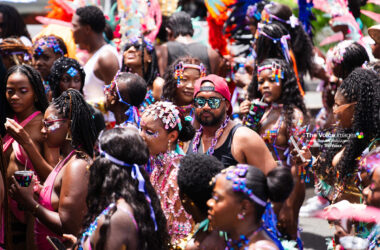SAINT Lucia will be celebrating its 45th Independence Anniversary next Thursday and the usual pomp and ceremony will take center stage.
As we write, organisers are putting the finishing touches on the spectacle to unfold on Thursday, a public holiday.
We call on the government and people, to pause for a moment in their pursuit of accomplishing certain events worthy of this year’s independence anniversary celebrations, and ask themselves these questions: How many of Generation X (born between1965-1980) know of the political battles fought between those who supported independence and those who did not? And how many of the millennials (born 1981-1996), Generation Z (born 1997 -2012) and Generation Alpha (born early 2010s-2025) know of the heated parliamentary debates for and against independence which took place in 1977, 1978 and at the start of 1979 as the Saint Lucia Labour Party and the United Workers Party tried to win the public over to their side. Were both political parties on the same page on the independence subject prior to 1979? Were Saint Lucians, meaning the average citizens, ever consulted on the subject of independence from Great Britain? And who were the leading characters who steered us to independence in 1979? What role did they and those who tried to destabilize the process played?
The authorities, it appears, are slowly losing sight of what we have coined ‘our path to independence’, as each year they attempt to better the celebrations of the previous year by placing more emphasis on transforming the independence holiday into a festival of events that serve to highlight little or no information about the island’s journey toward independence. In other words, what transpired to push Saint Lucia toward independence and finally achieving it from Great Britain on 22 February, 1979.
Each year we are seeing an added event, be it a fringe event or other, which says nothing about Saint Lucia’s journey to independence, completely oblivious to the fact that the island’s quest for independence was an emotional one, hence the fiery debates between opposing politicians during the months, weeks and days leading up to independence.
Have we ever studied and shown evidence to determine whether independence for Saint Lucia was either good or bad for its economic growth?
For the sake of the ‘new’ generations mentioned, we certainly need to include an educational aspect to our independence anniversary celebrations, something we believe is imperative to their overall knowledge of the country of their birth.
‘Why did Saint Lucia seek independence’ is a good topic to start in schools across the country now as we get closer to Independence Day. There may be other topics on independence that can be discussed, but we need to start somewhere or else 20 – 30 years from now that aspect of our history will be forgotten.
There are several reasons why countries seek independence, a couple reasons being to take management of their own economy, to have greater political control of their internal affairs, etc., etc. What were Saint Lucia’s reasons?
We will not overstate the point, but it is clear that more needs to be done to educate and inform our people, from school age upwards, about all aspects of our independence.
We leave you with this: Did you know that it was on Wednesday December 6, 1978 that the British government announced that Saint Lucia will be granted its independence on February 22, 1979? That announcement was made in London.
In this issue of the newspaper we have set the stage for this educational journey by giving you, our readers, an idea of what transpired in the aforementioned years leading to Independence on February 22, 1979.
Within the pages of our Independence Supplement are the headlines of some articles that described the tapestry of events which unfolded in the late seventies leading to independence in 1979. We hope this could be a start in bringing to the various generations listed above the importance of knowing our independence journey.













